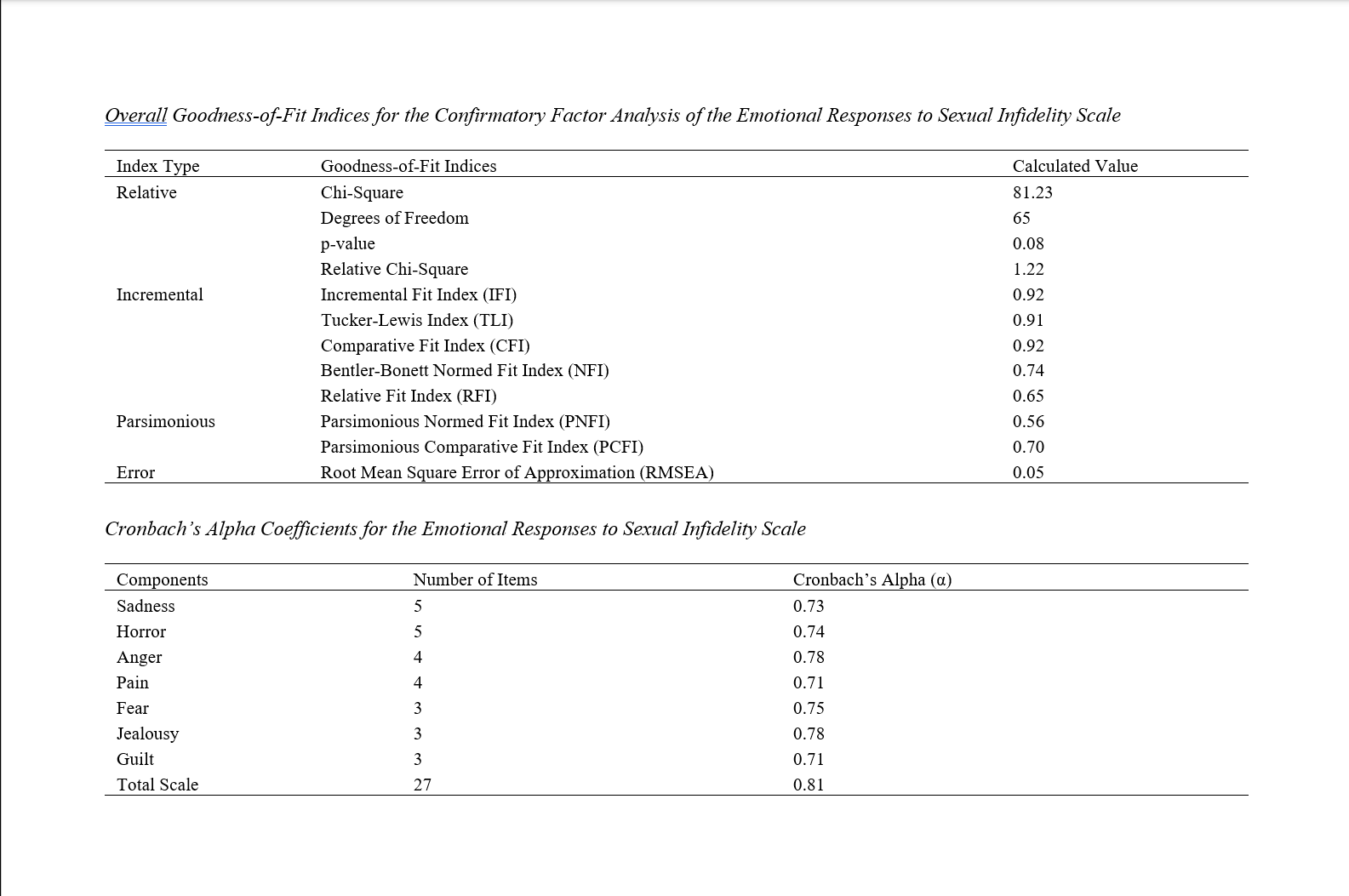Validation of the Emotional Responses to Sexual Infidelity Scale in Individuals Affected by Sexual Infidelity
Keywords:
Reliability, Sexual Infidelity, Validity, Emotional Responses, ValidationAbstract
Objective: The aim of the present study was to validate the Emotional Responses to Sexual Infidelity Scale in individuals affected by sexual infidelity.
Methods: This research employed a descriptive-analytical validation approach. The statistical population comprised individuals affected by sexual infidelity by their spouses, who sought assistance from psychological counseling centers and the Dispute Resolution Council in the city of Gorgan in 2023. A sample of 415 individuals was selected using a sample size estimation method. Data were collected using the Emotional Responses to Sexual Infidelity Scale developed by Turliuca & Scutarua (2014). After evaluating content validity, exploratory and confirmatory factor analyses were performed to assess construct validity. Cronbach’s alpha coefficient was used to examine reliability, and Pearson’s correlation coefficient test was applied for further investigation of the main research variables. Analyses were conducted using SPSS and AMOS24 software.
Findings: Confirmatory factor analysis findings demonstrated that the single-factor model of the Emotional Responses to Sexual Infidelity Scale exhibited good fit, based on the following indices: RMSEA = 0.05, CFI = 0.92, TLI = 0.91, and IFI = 0.92. The reliability of the 27-item Emotional Responses to Sexual Infidelity Scale was determined to be 0.81 based on Cronbach’s alpha. The content validity of the questionnaire exceeded 0.99. Bartlett’s test yielded a chi-square value of 748.65, degrees of freedom of 105, a significance level of 0.001, and KMO = 0.77.
Conclusion: The results indicate that the present scale has favorable psychometric properties for use in the Iranian population of individuals affected by sexual infidelity. It can be employed as a reliable instrument in future research and diagnostic contexts.
Downloads

Downloads
Additional Files
Published
Submitted
Revised
Accepted
Issue
Section
License

This work is licensed under a Creative Commons Attribution-NonCommercial 4.0 International License.

















